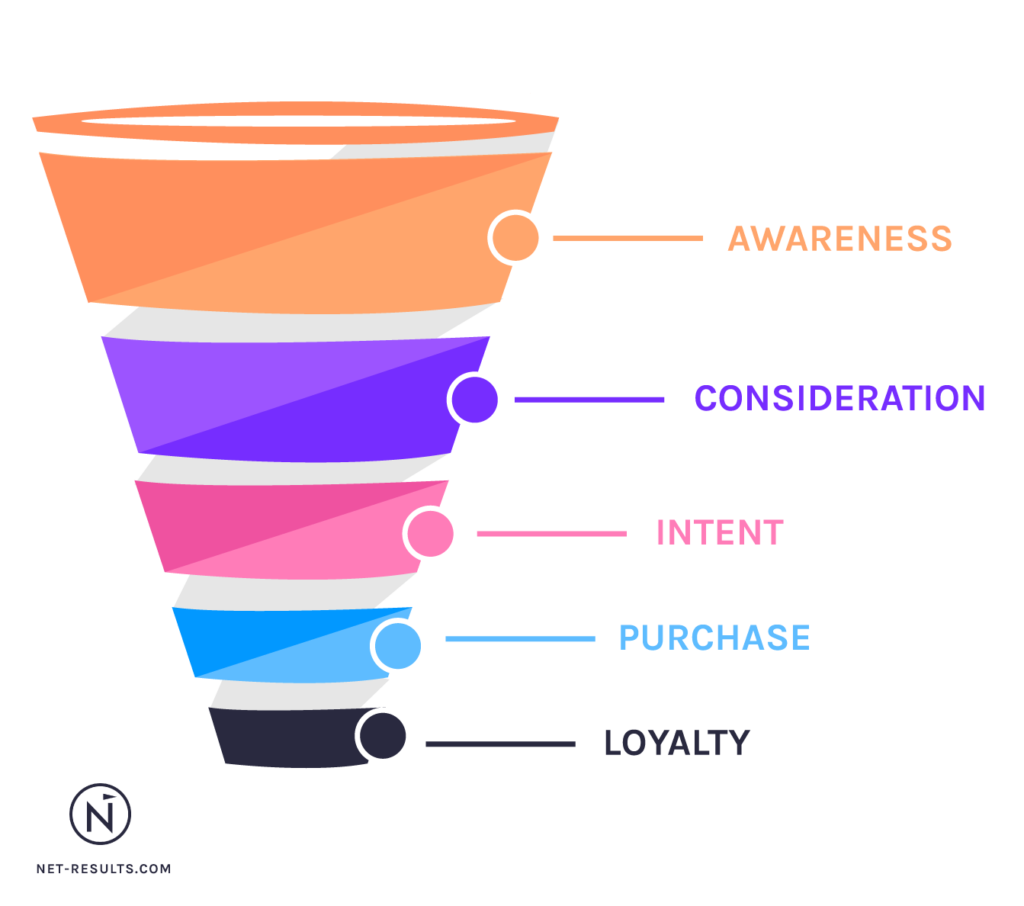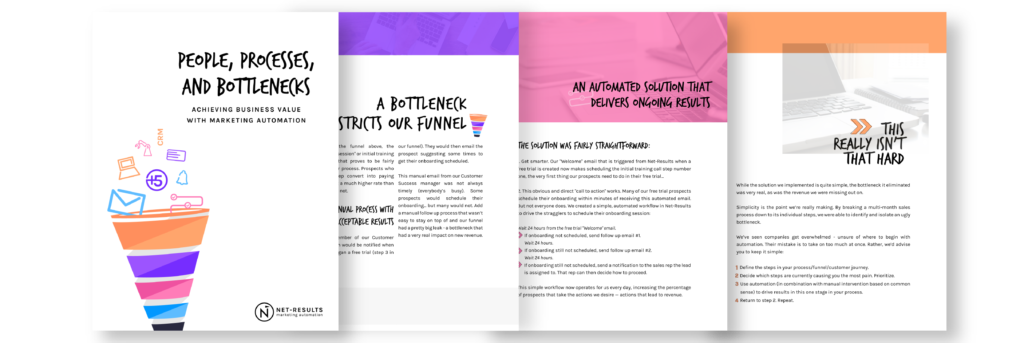As marketers, we talk about “funnels” a lot — and to be honest, we’re often talking about the same rose by another name. Customer journeys, buyer roadmaps, and marketing and/or sales funnels trend towards referring to the same concept: all the interactions that your audience and future customers interact with your brand.
Check out this blog post: How do you optimize a conversion funnel?

The whole “funnel” thing is sometimes argued to be outdated because sales cycles are rarely as straightforward as TOFU, MOFU, and BOFU. But the reality is that for most organizations, there are considerably fewer people who are actually purchasing from your organization than those who are aware of your organization. While few leads may enter into the funnel and follow a straight down path into loyalty, the funnel is still very relevant!
So you’ve got your funnel, you’ve documented your customer journey and then enters marketing automation… and the obvious concern for revenue-generating activities. Because that’s what it’s all about! When it comes to marketing, what’s the point of process and effort if they don’t lead to revenue for your organization?
Of course, with the time and money that you save using marketing automation, or Net-Results specifically where our customers go live 3 times faster than the competition, you can always pump more of those precious marketing dollars and minutes back into your marketing efforts, but let’s get more specific.
How can marketing automation generate revenue at every stage of the sales funnel?
Awareness + Consideration
The awareness stage is all about the buyer and their realization that they have a problem to solve. Once a lead has entered the consideration stage and is really thinking about your business and how you can help them solve their problems. The goal here is education, education, education — but in a compelling way. Save the sales pitches and provide content that will help them make a great decision.
What does that look like you ask? Well for starters, white papers and webinars! Store all of your pdfs and infographics in the Net-Results Asset Manager; pull them into emails or reference them easily on your landing pages. Marketing automation’s ability to integrate with webinar platforms make it easy to track who has attended what, in turn making it even easier to provide useful content that can contribute to a lead signing a contract with your organization. All of those efforts will help lead a well-educated buyer down your funnel, saving time and money and increasing the likelihood of closing that deal.
Buyers will also likely be using a search engine to find your content. Providing informative videos on your landing pages will also help build trust with your audience! Marketers who incorporate video into their campaigns experience 34% higher conversion rates (Aberdeen Group)! Hint: our Youtube, Wistia, and Vidyard integrations make it a snap.
Intent
With marketing automation, it’s easy to identify when the intent to buy is active in members of your audience. For example — maybe someone visits your pricing page after downloading a piece of content that indicates they’re considering your product. You can adjust that contact’s lead score and push that information to your SalesForce instance. Or use that lead score to qualify that contact for a campaign that’s all about the page they viewed on your site and offers them more content. Or you could set up an alert to trigger that contact’s lead owner!
The opportunities are endless but even better than that, they can all be automated, allowing your team to spend more time on what really matters — looking at metrics and making decisions that will benefit your marketing efforts!
Purchase
It’s a grave mistake to assume that the customer journey ends when a customer signs a contract — and I’m sure none of us here would ever think like that. 😉 More about the loyalty phase later, but we’re going to focus on the actual purchase and how you can use marketing automation to make sure that the revenue from that purchase is used well.
Your marketing automation platform is the hub of all your lead’s activities and attributes — that’s potentially thousands of data points that can be used to help you determine and confirm what that lead is really looking for and what will help you close a deal. Every email can be tracked, every activity scored, and every interaction recorded. We may sound like a broken record, but by delivering the right message to the right person at the right time, you increase the amount of data that your sales team can use to close deals, plus you are able to better qualify people so your organization’s time isn’t wasted on deals that won’t close.
Loyalty
When a customer signs on with your organization, it’s time to pop the champagne — and also focus on customer advocacy and building true champions for your product!
It’s common business knowledge that it’s way less expensive to keep a customer than get a new one. And marketing automation can be used for a whole variety of efforts that will help . Some ideas:
- What about a campaign that focuses on the benefits of an upsell or a different SKU than the one the customer is currently using?
- How about using Net-Results to send emails about customer satisfaction to give your account management and support teams more data to work with when it comes to closing or renewals?
- How about letting your customers know about
By the way, we have a super helpful whitepaper about exactly this topic: People, Processes, and Bottlenecks.

What you’ll learn in this whitepaper:
- How to identify and address bottlenecks within your own sales pipeline.
- The importance of prioritizing the steps in your customer journey
- Example workflows to learn how automation can be leveraged to increase marketing value and provide prospects with information at the right time
- Step through example workflows to learn how automation can be used to increase marketing value and provide prospects with information at the right time.

